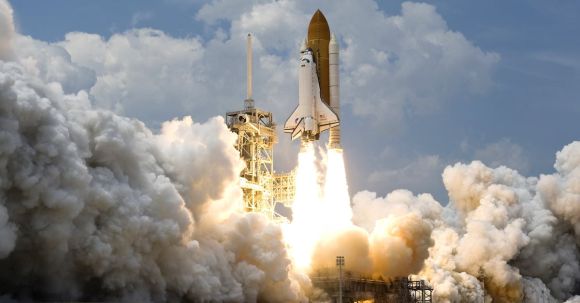Space travel has long captivated the imaginations of scientists, explorers, and dreamers alike. From the first manned mission to the moon to the potential colonization of Mars, the idea of venturing beyond our planet has always held a certain allure. However, as we consider the prospect of long-term space travel, a critical question arises: can humans survive the harsh conditions of outer space for extended periods of time? In this article, we will explore the challenges and potential solutions to this question.
The Hazards of Space
Space is an environment that is inherently hostile to human life. From extreme temperatures to high levels of radiation, the dangers are numerous. One of the main challenges is the lack of gravity, which can have profound effects on the human body. Astronauts who spend extended periods of time in microgravity experience muscle and bone loss, cardiovascular changes, and even changes to their vision. These effects can have long-lasting consequences and pose a significant threat to the success of long-term space missions.
Countering the Effects of Microgravity
To address the effects of microgravity, scientists are exploring various countermeasures. Exercise has proven to be a crucial element in mitigating muscle and bone loss, with astronauts spending hours each day on treadmills and resistance training. Additionally, new technologies such as artificial gravity systems and centrifuges are being developed to simulate the effects of gravity and provide a more sustainable environment for humans.
Radiation Protection
Another major concern is the high levels of radiation present in space. Beyond the protective shield of Earth’s atmosphere, astronauts are exposed to cosmic rays and solar radiation, which can damage DNA and increase the risk of cancer and other health problems. To combat this, spacecraft are equipped with shielding materials to reduce radiation exposure. Additionally, research is being conducted to develop medications and treatments that can help repair DNA damage caused by radiation.
Mental and Emotional Well-being
Long-term space travel also presents unique challenges to the mental and emotional well-being of astronauts. The isolation and confinement of a spacecraft can lead to feelings of loneliness and depression. To address this, NASA and other space agencies are implementing psychological support systems, including regular communication with loved ones on Earth and virtual reality tools to provide a sense of connection and familiarity.
Sustaining Life in Space
In addition to the physiological and psychological challenges, sustaining life in space for extended periods of time requires careful consideration of resources. Food, water, and oxygen are all essential for human survival, but in the limited confines of a spacecraft, these resources must be carefully managed. Advanced life support systems are being developed to recycle and regenerate these vital resources, reducing the dependence on resupply missions from Earth.
The Future of Long-term Space Travel
While the challenges of long-term space travel are significant, scientists and engineers are working tirelessly to find solutions. From technological advancements to medical breakthroughs, progress is being made to ensure the safety and well-being of astronauts on extended missions. As we continue to push the boundaries of human exploration, the dream of venturing beyond our planet for extended periods of time becomes closer to reality.
In conclusion, the question of whether humans can survive long-term space travel is a complex one. The hazards of space, from microgravity to radiation, pose significant challenges. However, through innovative technologies and advancements in medical science, solutions are being developed. As we look to the future, the dream of exploring the farthest reaches of our universe may not be as far-fetched as it once seemed. With careful planning and continued research, humans may indeed be able to survive and thrive on long-term space missions, expanding our understanding of the cosmos and paving the way for future generations of explorers.





